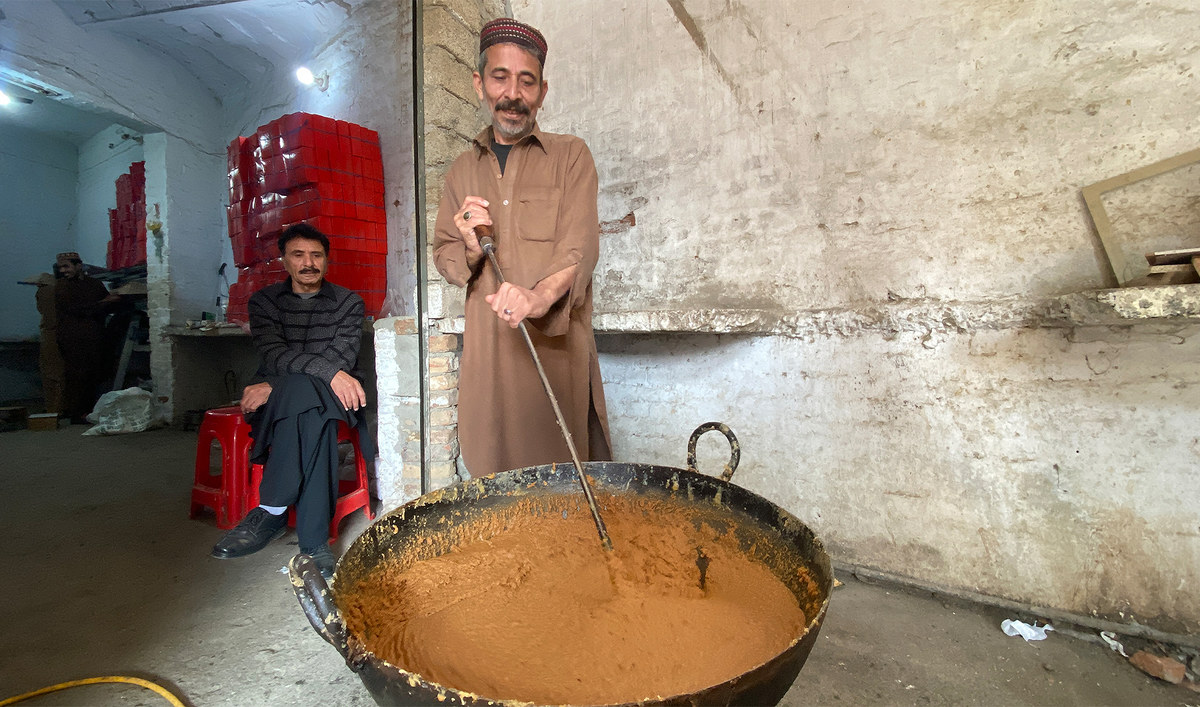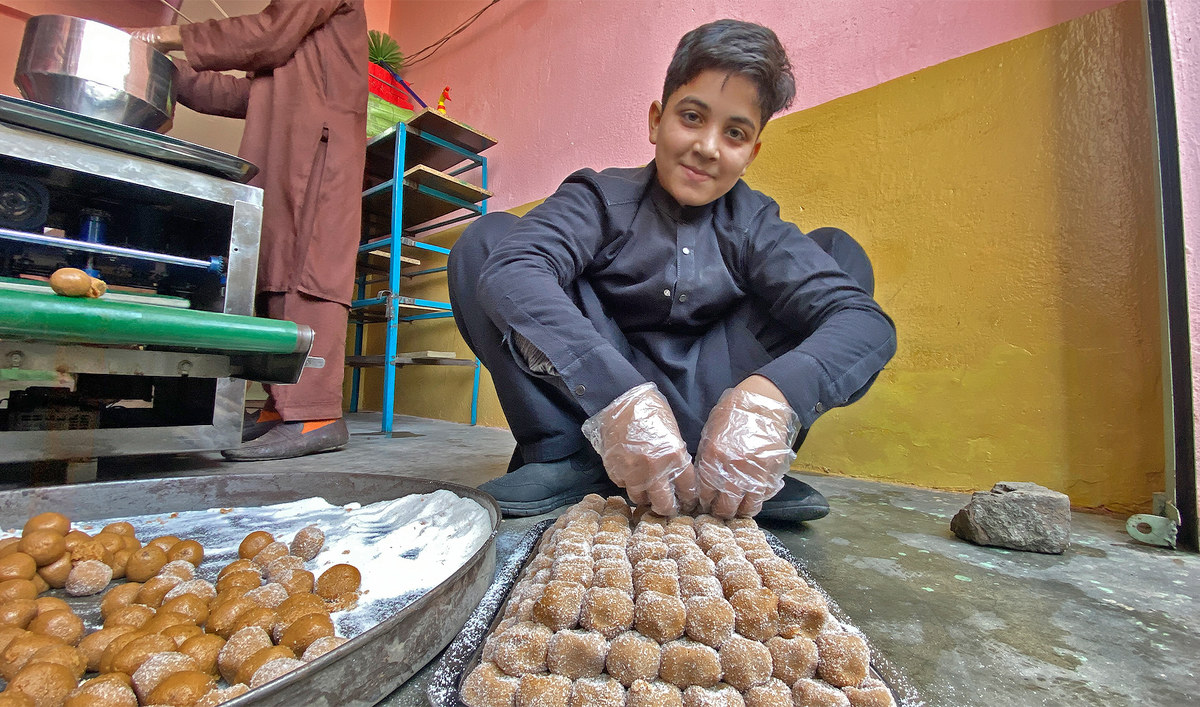MARDAN: Amid the streets of Mardan, the second-largest city in Pakistan’s northwestern Khyber Pakhtunkhwa province, a sweet legacy from across the border captivates both locals and visitors.
Budayuni Pera, a delicacy with its roots in the Indian city of Budaun in Uttar Pradesh, has found a second home in Pakistan owing to the migrants who brought the treasured recipe with them in the years following the 1947 partition.
On Mardan’s Bank Road, about a dozen shops proudly display their version of the beloved sweet that is reminiscent of a dough ball despite being quite unique in its flavor.
Budayuni Pera is more than just a treat: it’s a symbol of a shared history and enduring ties between the two South Asian countries, in spite of the geopolitical bitterness between them.
“My father’s workers came from [Budaun] and brought the unparalleled formula from there,” Muhammad Adnan, 32-year-old custodian of one of the outlets stretching along the Bank Road, told Arab News, while narrating the journey of the sweet to Pakistan. “This is now Mardan’s gift which is known for its unique and sweet taste.”

Fifty-year-old Hazrat Ali is making Badayuni Pera in Mardan, Pakistan, on 27 December, 2023 (AN photo)
Adnan’s father, Muhammad Usman, now 70, was among the first in the city to master the art of making Budayuni Pera, learning from Muhammad Zamir Khan, an early migrant from India.
Usman dedicated 33 years to perfecting Budayuni Pera in Mardan before he quit working at other shops and set up his own in 2000, serving customers the delicacy. He passed the family business down to his sons and brothers.
“We have taught many people the process of making the sweet,” Adnan said. “We don’t keep its ingredients secret. It’s the blessing of Allah that makes it special.”
The primary ingredients of Budayuni Pera are simple yet precise: condensed milk and sugar, cooked in imported essential oil.
Fifty-year-old Hazrat Ali, Usman’s brother and Adnan’s uncle, has been crafting the sweet since 2000.
“We start with condensed milk, add sugar and cook it until it reaches the perfect consistency and color,” he said.

Hazrat Ali's son, Muhammad Sadiq, is placing the pera on a tray in Mardan, Pakistan, on 27 December, 2023. (AN photo)
The process requires at least one hour of cooking, followed by a cooling period before the mixture is cut into small pieces with a machine.
Budayuni Pera has not only captivated local customers but also people living in other parts of the world.
“We’ve sent it globally, particularly to Saudi Arabia, where there’s high demand for it among the Pathan community,” Adnan said.
Muhammad Zakaria, a young customer who has been sending Budayuni Pera to friends in Saudi Arabia, and Hassan Meer, who is in his late 30s, are regular visitors to Mardan, both attesting to the unique taste of this special sweet.
“Its flavor is unmatched by any other sweet,” Meer said.
















